Which Night is Laylat al-Qadr?
The Night of Qadr is the best of the nights and better than a thousand months. Allah revealed the Holy Qur’ān on this Night when every matter of wisdom was made distinct.
The reason for concealing the Night of Qadr is to motivate worshipers to persevere in all forms of worship during the last ten days of Ramaḍān and not limit themselves to worship in one night alone. Therefore, it is worthy of engagement for a Muslim to utilize the entire last ten nights of the blessed month of Ramaḍān adequately in tilāwah, ṣalāt, ṣadaqah, iꜥtikāf, and duꜥā.
The Prophetic Traditions can guide a treasure hunter who aims to narrow down the Night of the last ten days through several authentic Hadith narrations. However, glancing at most of the compilation of narrations reveals that the treasure hunter should not stop staying ONE night to reserve the wealth; instead, he should visit all nights when the accumulated wealth is worthy of spending in his entire life both herein and hereafter. The following are the authentic Prophetic narrations that mark the Night of Qadr in the last ten days of Ramaḍān:
- Abū Hurairah (RA) reported: The Prophet ﷺsaid, who so ever performs qiyām during Lailat al-Qadr (Night of Decree), with faith and being hopeful of Allah's reward, will have his former sins forgiven.[1]
- ꜥĀ’ishah (RA) reported: The Prophet ﷺ used to observe iꜥtikāf in the last ten days of Ramaḍān and say, Seek Lailat al-Qadr (Night of Decree) in the odd nights out of the last TEN nights of Ramaḍān.[2]
- Ibn ꜥUmar (RA) reported: Some of the companions of the Prophet ﷺsaw Lailat al-Qadr (Night of Decree) in their dreams in the last seven nights of Ramaḍān, whereupon the Prophet ﷺ said, I see that your dreams all agree upon the last seven nights. Whosoever seeks it, let him seek it in the last SEVEN nights.[3]
- Narrated Abu Saꜥīd al-Khudrī (RA): The Prophet ﷺ used to practice iꜥtikāf (in the mosque) in the middle third of Ramaḍān, and after passing the twenty nights he used to return home; so did his followers.In one Ramaḍān, in which he practiced iꜥtikāf, he established the night prayers and then he addressed people and ordered them whatever Allah wished him to order and said, I used to practice iꜥtikāf for these ten days (i.e., the middle third), but now I intend to stay in iꜥtikāf for the last ten days (of the month); so whoever was in iꜥtikāf with me should stay at his place of seclusion. I have verily been shown (the date of) this Night (Qadr), but I have forgotten it. So, search for it in the odd nights of the last ten days (of this month). I also saw myself (in the dream) prostrating in mud and water. On the night of the TWENTY-FIRST, the sky was covered with clouds, and it rained, and the water started leaking through the roof of the mosque at the praying place of the Prophet ﷺ. I saw with my own eyes the Prophet ﷺafter the morning prayer leaving with his face covered with mud and water.[4]
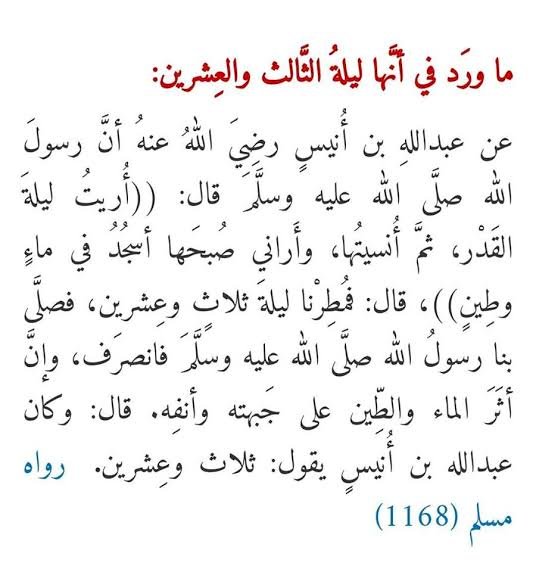
- ꜥAbdullāh b. Unais (RA) reported the Prophet ﷺ saying: I was shown Laylat al-Qadr; then I was made to forget it and saw that I was prostrating in water and clay in the morning of that (night). He (the narrator) said: there was a downpour on the twenty-third night and the Messenger of Allah ﷺ led us in prayer, and as he went back, there was a trace of water and clay on his forehead and nose. He (the narrator) said: ꜥAbdullāh b. Unais used to say that it was the TWENTY-THIRD (night).[5]
- Narrated ꜥAbdullāh ibn Unays (RA): I was present at the gathering of Banū Salamah, and I was the youngest of them. They (the people) said: Who will ask the Prophet (PBUH) for us about Laylat al-Qadr? That was the twenty-first of Ramaḍān. I went out and prayed the sunset prayer along with the Prophet ﷺ. I then stood at the door of his house. He passed by me and said: Come in. I entered (the house) and dinner was brought for him.I was objected from taking food as it was scanty. When he finished his dinner, he said to me: Give me my shoes. He then stood up, and so did I with him. He said: Perhaps you have some business with me. I said: Yes. Some people of Banū Salamah have sent me to you to ask you about Laylat al-Qadr. He asked: Which night is it tonight? I said: TWENTY-SECOND. He said: This is the very night. He then withdrew and said: Or the following night, referring to the TWENTY-THIRD night.[6]
- Zirr bn. Hubaish (RA) reported: I heard from Ubayy b. Kaꜥb a statement made by 'Abdullāh b. Masꜥūd in which he said: He who gets up for prayer (every night) during the year will hit upon Lailat al-Qadr. Ubayy said: By Allah, there is no God but Him, that (Lailat al-Qadr) is in Ramaḍān (He swore without reservation) By Allah, I know the night; it is the night on which the Prophet (PBUH) commanded us to pray. It precedes the morning of TWENTY-SEVENTH, and its sign is that the sun rises bright on that day without rays.[7]
- ꜥUyainah bin ꜥAbd al-Raḥmān (RA) narrated: My father narrated to me: the Night of Qadr was mentioned in the presence of Abū Bakrah, so he said: I do not search for it due to something that I heard from the Messenger of Allah ﷺ, except for during the LAST TEN (nights); for indeed I heard him say: Search for it when NINE remain, or when SEVEN remain, or when FIVE remain, or during the last THREE nights. He (ꜥUyainah) said: during the twenty (nights) of Ramaḍān, Abu Bakrah used to perform ṣalāt just as he performed ṣalāt during the rest of the year. But when the (last) TEN began, he would struggle (performing more ṣalāt during the night).[8]
Let us strive hard to reap the rewards of the NIGHT of Qadr on every SINGLE night of last TEN days or whatever the number of nights left if we are already reaching the end of the blessed month of Ramaḍān just because the abundance of rewards for those who attained laylat al-Qadr is more than worthy of spending his/her every night of the entire life in searching for laylat al-Qadr.
اللّهمّ اجعل صيامنا في رمضان صيام الصآئمين وقيامنا قيام القآئمين ونبّهنا فيه عن نومة الغافلين وهب لنا جُرمنا فيه يا ربّ العالمين واعف عنّا يا عافيا عن المجرمين
O Allah, on this day, make my fasts the fast of those who fast sincerely, and my standing up in prayer of those who stand up in prayer obediently, awaken me in it from the sleep of the heedless, and forgive me my sins, O God of the worlds, and forgive me, O one who forgives the sinners.
Reference
[1]Ṣaḥīḥ al-Bukhārī and Ṣaḥīḥ Muslim. Riyāḍ al-Ṣāliḥīn, Book 8, Hadith No. 199
[2]Ṣaḥīḥ al-Bukhārī, Riyāḍ al-Ṣāliḥīn, Book 8, Hadith No. 202
[3]Ṣaḥīḥ al-Bukhārī and Ṣaḥīḥ Muslim, Riyāḍ al-Ṣāliḥīn, Book 8, Hadith No. 200
[4]Ṣaḥīḥ al-Bukhārī, Book 32, Hadith No. 5
[5]Ṣaḥīḥ Muslim, Book 13, Hadith No. 281
[6] Sunan Abū Dāwūd, Book 6, Hadith No. 9
[7]Ṣaḥīḥ Muslim, Book 6, Hadith No. 213
[8] Sunan Tirmidhī, Book 8, Hadith No. 113
(Mohammed Aslam Akbar Hasani is an Assistant Professor in Shariꜥah Sciences and Heritage at the Department of Economics, Kulliyyah of Economics and Management Sciences, International Islamic University Malaysia (IIUM).He teaches undergraduate courses in Islamic commercial jurisprudence and Islamic economics and conducts research on the classical works of Muslim scholarship in economic thought and Maqasid al-Shariah based developments.)
Disclaimer
The views expressed in this article are the author’s own and do not necessarily mirror Islamonweb’s editorial stance.




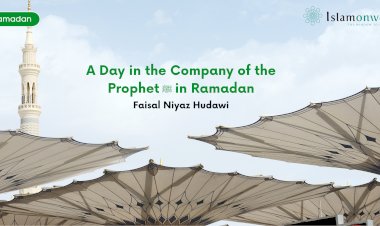
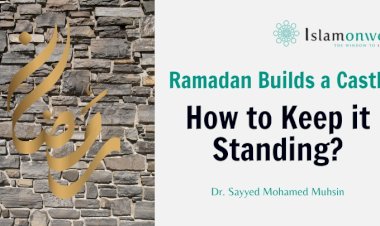
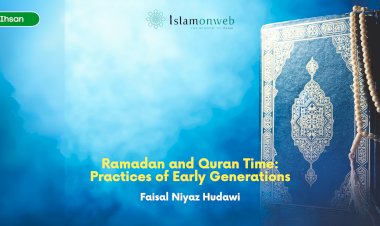
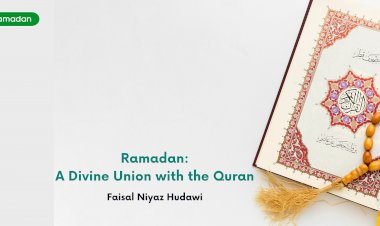
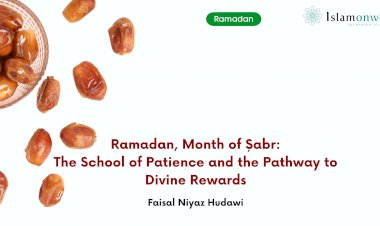
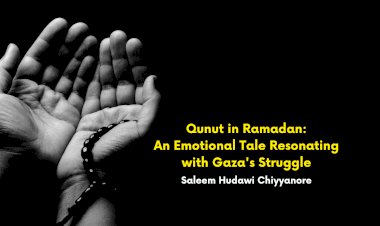














Leave A Comment